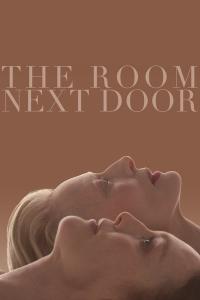Torrent details for "[ambient, experimental] (2022) Lucy Liyou – Welfare / Practice [FLAC] [DarkAngie] " Log in to bookmark
Controls:
Language:
 English
EnglishTotal Size:
303.12 MB
Info Hash:
9a2859ef28196f1a2d6c0592d1c5e0bff0d9a042
Added By:
Added:
12-08-2022 01:31
Views:
254
Health:

Seeds:
0
Leechers:
0
Completed:
0
Name
DL
Uploader
Size
S/L
Added
-
195.69 MB
395
[4/2]
17/07/22 05:40
| Uploaded by DarkAngie | Size 195.69 MB | Health [4/2] | Added 17/07/22 05:40 |
-
139.51 MB
203
[3/0]
10/02/23 17:09
| Uploaded by DarkAngie | Size 139.51 MB | Health [3/0] | Added 10/02/23 17:09 |
-
201.05 MB
298
[2/0]
12/02/23 21:52
| Uploaded by DarkAngie | Size 201.05 MB | Health [2/0] | Added 12/02/23 21:52 |
-
120.65 MB
233
[2/0]
07/08/22 01:16
| Uploaded by DarkAngie | Size 120.65 MB | Health [2/0] | Added 07/08/22 01:16 |
-
230.56 MB
220
[2/1]
24/01/23 19:54
| Uploaded by DarkAngie | Size 230.56 MB | Health [2/1] | Added 24/01/23 19:54 |
-
116.32 MB
268
[2/0]
19/07/22 02:41
| Uploaded by DarkAngie | Size 116.32 MB | Health [2/0] | Added 19/07/22 02:41 |
Review:
For Philadelphia-based sound artist Lucy Liyou, this tension between the technology as a soulless automation and a vehicle for our innermost thoughts is everything. “The idea that a text-to-speech generator attempts to sound as perfectly human as possible is ironic,” the Korean-American artist told Tone Glow in 2020. “The way it fails to capture certain sentiments feels like a vessel that contains my voice, as twisted as that sounds.” In Liyou’s hands, the tool’s detached enunciation becomes a conduit for deep, anguished explorations into trauma both personal and generational. Sometimes it reads like a gutting AI transcript of family therapy sessions, becoming yet another contorted outgrowth of Liyou’s short-circuiting sound design. Other times, Liyou’s gentle piano playing makes the voice feel almost innocent as it unfolds like a yearning diary entry, expressing affections too private to say out loud. Listening to Liyou’s music can be an intense, discomforting experience—but devote your full attention to it, and their sparse assortment of sounds reveals a world of conflicting emotions, gliding between visceral heartache, simmering resentments, and quiet gratitude. Collecting Liyou’s first two releases, this double-disc reissue from American Dreams demonstrates the 24-year-old artist’s unique, disorienting vision. Of the two, their 2020 debut, Welfare, is the bolder statement. Originally released via like-minded laptop experimentalist Klein’s personal imprint after the two met through an Instagram Q&A, Welfare dives headfirst into a sprawling song cycle of familial struggle, weaving together extended dioramas of sound poetry that are as fascinating as they are terrifying. It would be an ambitious project even for an artist who wasn’t 21 at the time; at the same time, its confusion and frustrated sense of release feel like they only could have come from a young voice still fighting to express itself, like a caged bird thrashing to be freed. Liyou conceptualized Welfare as a take on Korean p’ansori, a minimalist style of folk opera built entirely around simple drum rhythms and expressive, winding vocalizations. In p’ansori, because there are almost no other instruments, the performer drives the song using the cadence of their voice, with each inflection helping to tell a little bit more of the story. Likewise, Welfare casts Liyou’s text-to-speech bot as the album’s unnerving narrator, using small wrinkles in its delivery to uncover peculiar new emotional textures. On “I’m Going to Therapy,” after a nervous intro in which Liyou admits that they haven’t told their mother they’re seeing a therapist, the automated voice appears against total silence, recounting a painful memory of Liyou’s mother: “You told me when I was six years old, ‘What kind of fucking boy cries because of X, Y, and Z?’” Even coming from an A.I. voice, that “fucking” conveys so much awful pathos and bitterness. Shortly after, over a bed of what sounds like warped church organ floating in negative space, a human voice representing Liyou’s father enters the picture coated in booming distortion, uttering, “You need to get him in check.” All these moments play like dramatizations transcribed directly from Liyou’s life, presented here through the rawest, most primitive music software available. Each passage of Welfare subverts and expands on the last. After the hauntingly gorgeous piano ballad “Unnie”—where, in a trembling whisper, Liyou uses their actual voice to wrestle with defining themselves against Korean gender stereotypes—“Who You Feed” arrives like an unholy demon birth, briefly switching the album’s POV to Liyou’s parents and casting Liyou themself as the real monster. “I’m getting bigger,” a childlike digital voice announces over a disturbing collage of wet, breathing mouth noises. “And bigger,” it repeats, getting deeper each time. Just when it seems like the mood can’t get any more unsettling, the voice gutturally proclaims, “I’m getting tired of you”; in an instant, Liyou takes a magnifying glass to the horrors of parenthood, looking at their own parents’ hardships with raising a child and treating them with the same sense of bizarre dread. By the time the album reaches its ending with “Some Form of Kindness,” it feels like Liyou has learned how to negotiate this complex familial love, accepting its embrace and recognizing its limits in the same humbled breath. After such a dense, pointedly profound work, Practice sounds more diffuse. Where Welfare plays like a four-part miniature theater piece, Practice’s sketches are all over the place, like Polaroids capturing ordinary day-to-day moments. Recorded over several weeks while Liyou was visiting family in Seattle and their grandmother was simultaneously suffering from a serious illness, Practice feels less like a grandiose statement of intent and more like the work of an artist piecing together their grief in the moment, turning over brief conversations and flashes of memory to uncover hidden meanings. Musically, Practice goes down smoother than Welfare, placing the onus on softly glowing ambient passages and twinkling neoclassicalism. Swapping out the MIDI pianos they used on their debut, Liyou recorded Practice on acoustic piano at home. You can feel the difference: “You Are Every Memory” opens the album on a glistening note, as Liyou’s piano dances around pitched-up recollections of family members’ reactions to their grandmother’s sickness, each voice laid on top of one another like a racing inner monologue. On “Hail Mary,” Liyou makes the contrast between tension and release even more direct: After a text-to-speech intro in which Liyou apologizes to their mother (a mechanical voice just barely managing to eke out, “You’re right Mom, I don’t know everything about you”), a gorgeous field of drones appears, swelling with voices and angelic bells, like some peaceful clearing materializing in the wake of a great storm. Even the uncanniness of the instruments can’t stop the moment from feeling like some kind of necessary absolution. Like Welfare, Practice thrives when Liyou shows us these intimate conversations and conflicts laid bare. Their music is surreal enough on its own that the ambiguous, unclear dialogue in scenes like “Uncle” and “How to Build an Automaton” leaves less of an impression, even if the sounds are compelling. But when Liyou confronts these complicated family dynamics directly—as on the noisy, barbed exchange of “At the Dinner Table,” or in the loving message Liyou leaves to their grandmother on “September 5”—everything abstract about their work becomes secondary to the universal nature of the feelings they describe. As much as Liyou’s struggles are rooted in personal circumstances, the ideas they wrestle with could apply to anybody. It’s as if Liyou has tapped into a strange new language for communicating difficult truths that each of us already knows, translating them through a bare, puppet-like voice. If the artificial voices seem uncomfortable, it’s only because what they’re saying is all too real. — Pitchfork

Track List:
01 - I'm Going to Therapy
02 - Unnie
03 - Who You Feed
04 - Some Form of Kindness
05 - You are every memory
06 - Uncle
07 - At the dinner table
08 - Easiest
09 - How to build an automaton
10 - Patron
11 - Hail mary
12 - September 5
Media Report:
Genre: ambient, experimental
Country: USA
Format: FLAC
Format/Info: Free Lossless Audio Codec, 16-bit PCM
Bit rate mode: Variable
Channel(s): 2 channels
Sampling rate: 44.1 KHz
Bit depth: 16 bits
Note: If you like the music, support the artist











































